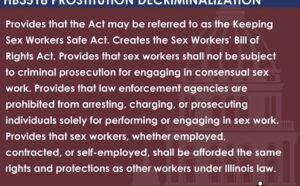LOS ANGELES — The AIDS Healthcare Foundation filed court papers today asking a federal judge to oppose Vivid Entertainment’s motion to reconsider its “intervenors” status in the studio’s legal fight to stay enforcement of Measure B and to oppose a judgment on the pleadings.
The AHF also asked the federal court today to remand the case to state court, claiming it is a better venue to “hear and receive all facts and arguments concerning the measure.”
The concurrent moves to reconsider its status, oppose a judgment in the case and move the case to state court could be last-ditch efforts by the AHF to defend against injunctive relief over enforcement of Measure B.
Vivid and co-plaintiffs Kayden Kross and Logan Pierce filed their suit in January at U.S. District Court in Los Angeles, seeking to topple Los Angeles County’s Safer Sex in the Adult Film Industry Act, which was approved by voters in November.
In oral arguments two weeks ago, U.S. District Judge Dean Pregerson did not touch the issue of AHF’s status as intervenors in the suit on behalf of defendant Los Angeles County, saying Vivid’s argument was “well-briefed.”
Pregerson in April ruled that the AHF could intervene in Vivid’s suit seeking injunctive relief over enforcement of Measure B.
The court granted AHF’s motion to intervene based on the 9th U.S. Circuit Court of Appeal case Hollingsworth vs. Perry. That ruling held that opponents of gay marriage behind California’s 2008 Proposition 8 effort had the constitutional authority, or standing, to defend the law in federal courts after the state refused to appeal its loss at trial years earlier.
But the U.S. Supreme Court recently overturned the Hollingsworth decision, and Vivid asked Pregerson to disqualify the AHF as intervenors.
Today, AHF attorneys filed a motion to refute Vivid’s stance that the organization should be removed from the suit and that the organization can demonstrate it has a “significantly protectable interest” that satisfies Article III, which allows only an entity or individual who has suffered injury itself or himself to bring a case or appeal in federal court.
“Without intervenors, there is no one in this case to defend that will,” the AHF said. “Further, even if the court affirms its decision to allow intervenors in the case, since intervenors potentially could not appeal an adverse decision, the more appropriate forum is a California state court.
“Because intervenors and/or the citizens of Los Angeles County would have full rights in the California state courts to defend Measure B, and because uniquely Californian issues are a predominant part of this case, the court should abstain from exercising jurisdiction over this matter.”
In the concurrent motion, the AHF argued in its brief to oppose a judgment on the pleadings that Vivid has denied all of its factual allegations, including those that would establish standing and this court’s jurisdiction, and that the pleadings do not establish all the facts required to sustain a judgment.
Further, the AHF said that Measure B does not violate Vivid’s First Amendment rights. The AHF, in a court brief, focused on the U.S. Supreme Court case City of Erie vs. Pap’s A.M. (Kandyland) that upheld the validity of a city ordinance prohibiting public nudity from a challenge that it prohibited expressive nude dancing in violation of the First Amendment because of “harmful secondary effects.”
“While the court agreed that the ordinance did ban nude dancing (dancers were required to wear, at a minimum, pasties and G-strings), and that nude dancing is expressive conduct, the ordinance did not violate respondents’ First Amendment right to free expression,” the AHF said.
The AHF also said that Measure B doesn’t regulate speech and that use of a condom when filming is even less restrictive than the ordinance at issue in the Erie ruling.
“The Erie ordinance limited what type of dancing may be shown and viewed in Erie,” the AHF said. “Measure B, by contrast, in no way limits what films may be viewed by the residents of Los Angeles County.
“It also in no way limits what films plaintiffs may wish to show in Los Angeles County. Measure B does not ban, punish, or regulate any messages regarding condomless sex in any film. Measure B is not directed at, and is uninterested in, whatever message condomless sex may communicate.
“As such, Measure B is not a speech-related measure, and is not subject to First Amendment scrutiny in the first instance.”
The organization also said that the measure isn’t a prior restraint, nor is it vague, and that the permit fee is permissible. It further said that the ordinance isn’t preempted by Cal/OSHA standards and that Measure B contains a severability provision.
Pregerson, in oral arguments two weeks ago, said that he had deep-seated troubles with Measure B’s language as to severability.
“As the overall aim is STD prevention, the invalidity of any one provision would not render the entire Measure ineffective, and the voters would prefer it to the status quo,” the AHF said. “Measure B also is grammatically severable. Its separate provisions and distinct requirements ‘can be removed as a whole without affecting the wording of any other provision.’ It also is functionally severable, in that its separate and distinct requirements (permit, training, etc.) are ‘capable of independent application’ without the invalid part.”






